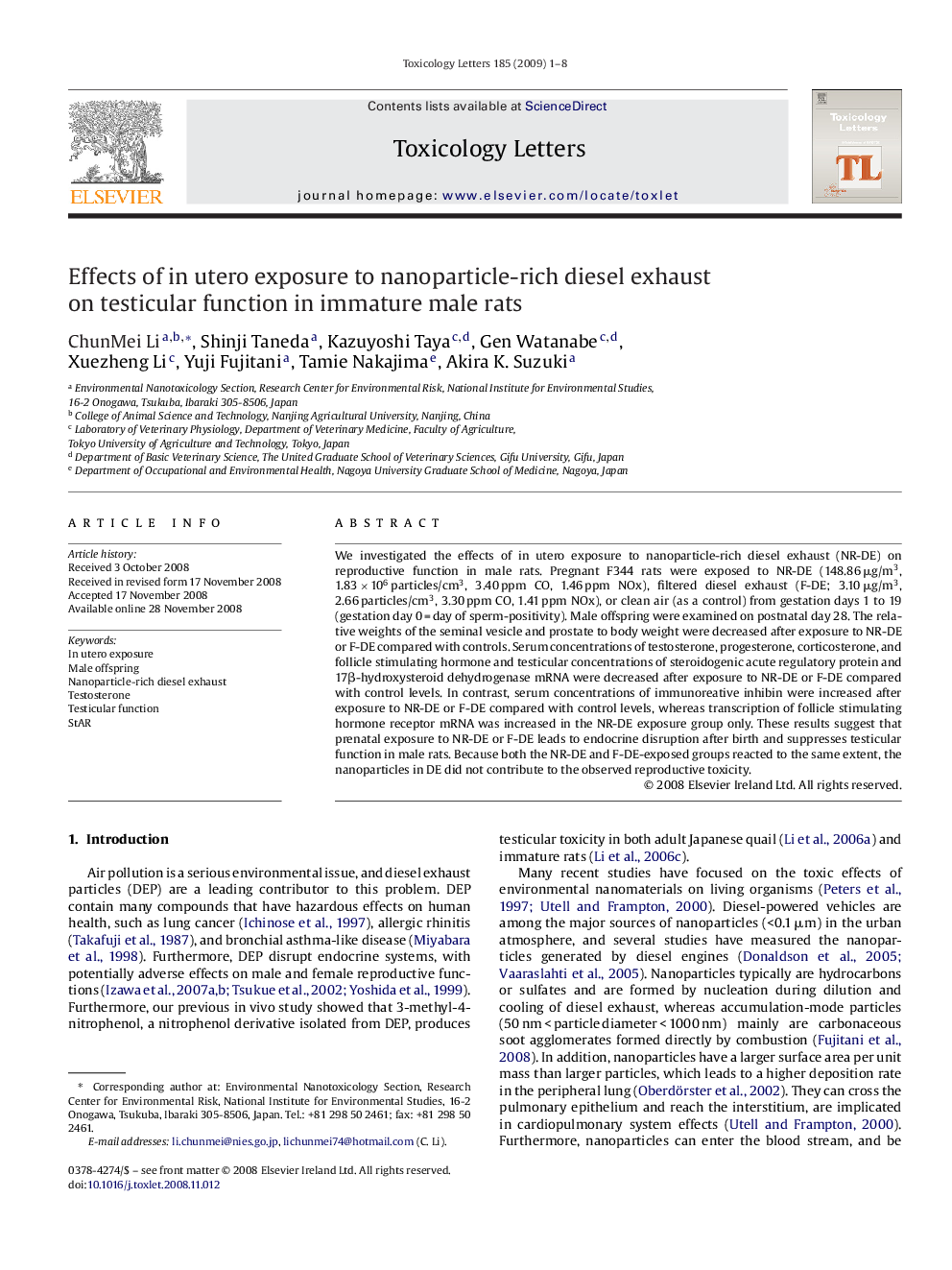| Article ID | Journal | Published Year | Pages | File Type |
|---|---|---|---|---|
| 2601138 | Toxicology Letters | 2009 | 8 Pages |
We investigated the effects of in utero exposure to nanoparticle-rich diesel exhaust (NR-DE) on reproductive function in male rats. Pregnant F344 rats were exposed to NR-DE (148.86 μg/m3, 1.83 × 106 particles/cm3, 3.40 ppm CO, 1.46 ppm NOx), filtered diesel exhaust (F-DE; 3.10 μg/m3, 2.66 particles/cm3, 3.30 ppm CO, 1.41 ppm NOx), or clean air (as a control) from gestation days 1 to 19 (gestation day 0 = day of sperm-positivity). Male offspring were examined on postnatal day 28. The relative weights of the seminal vesicle and prostate to body weight were decreased after exposure to NR-DE or F-DE compared with controls. Serum concentrations of testosterone, progesterone, corticosterone, and follicle stimulating hormone and testicular concentrations of steroidogenic acute regulatory protein and 17β-hydroxysteroid dehydrogenase mRNA were decreased after exposure to NR-DE or F-DE compared with control levels. In contrast, serum concentrations of immunoreative inhibin were increased after exposure to NR-DE or F-DE compared with control levels, whereas transcription of follicle stimulating hormone receptor mRNA was increased in the NR-DE exposure group only. These results suggest that prenatal exposure to NR-DE or F-DE leads to endocrine disruption after birth and suppresses testicular function in male rats. Because both the NR-DE and F-DE-exposed groups reacted to the same extent, the nanoparticles in DE did not contribute to the observed reproductive toxicity.
